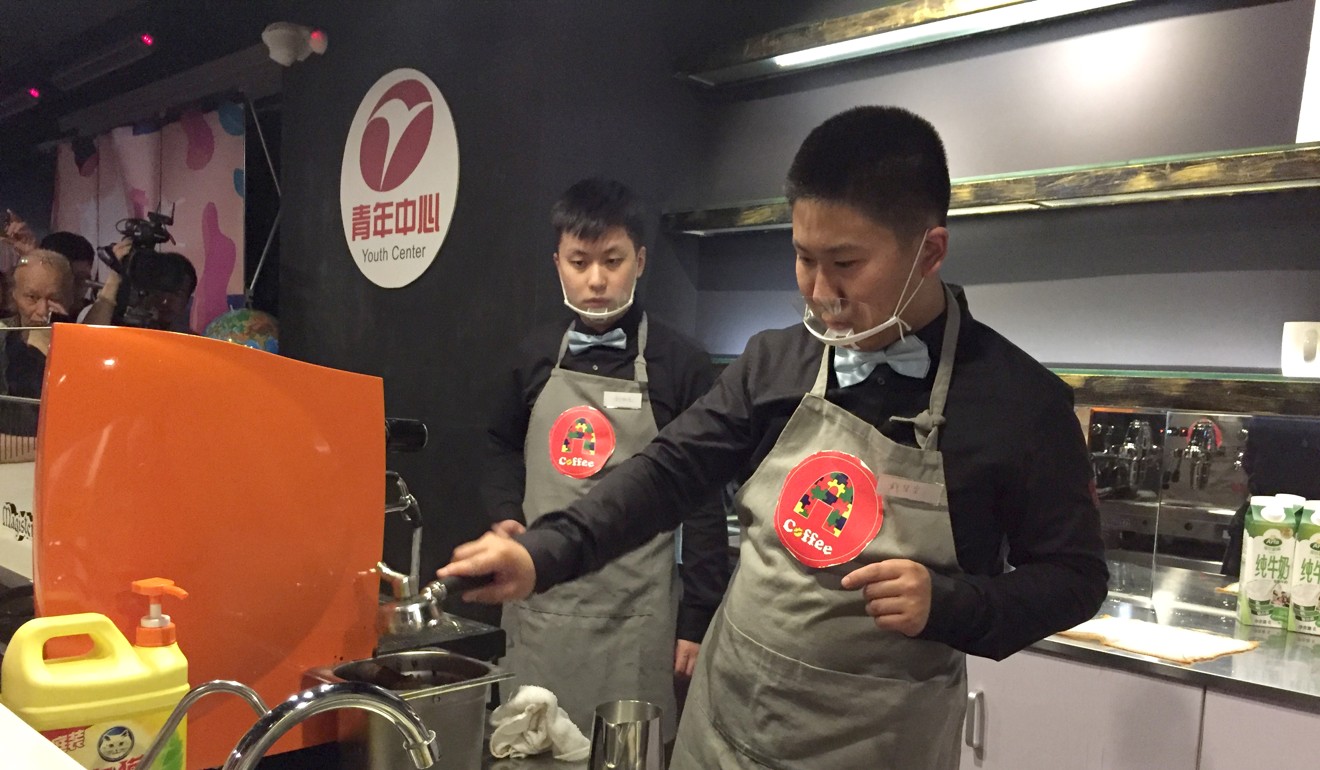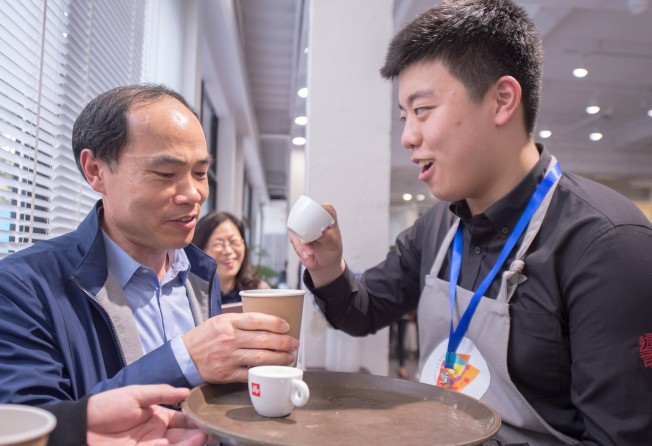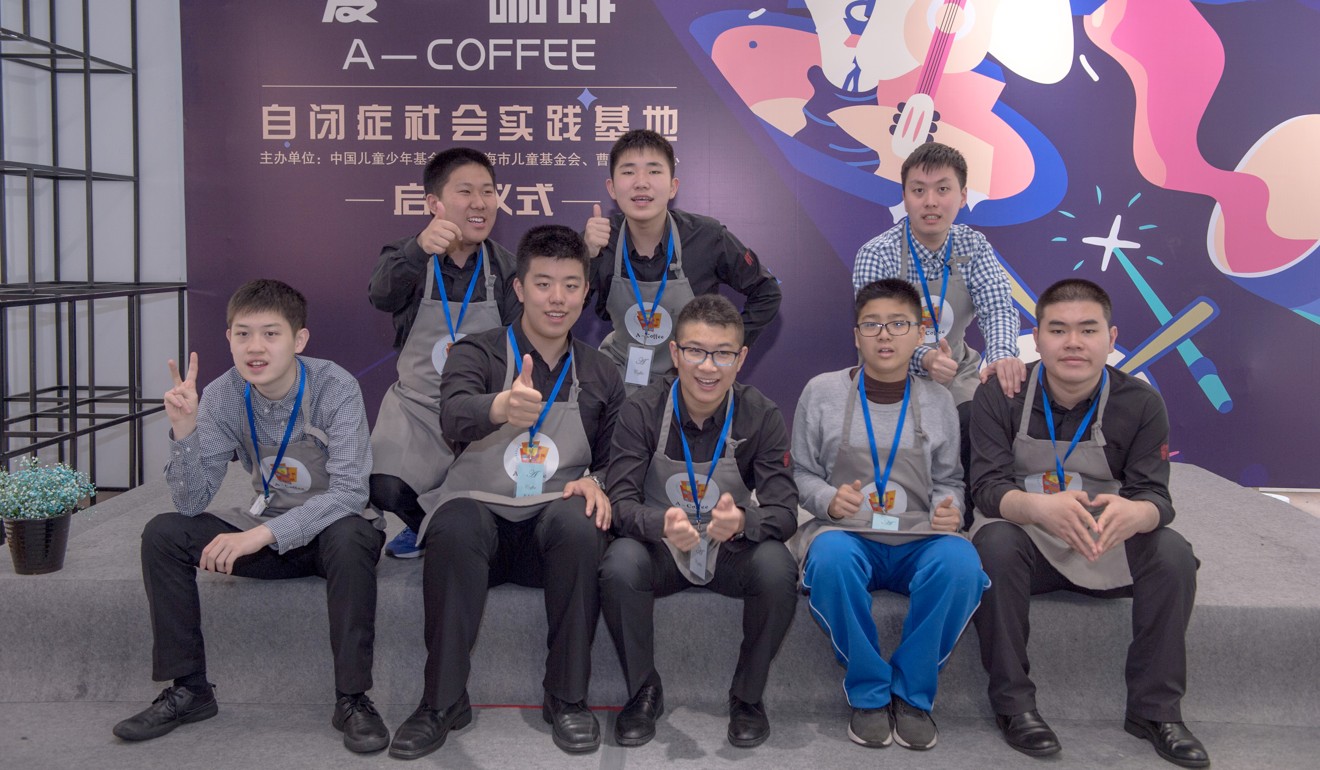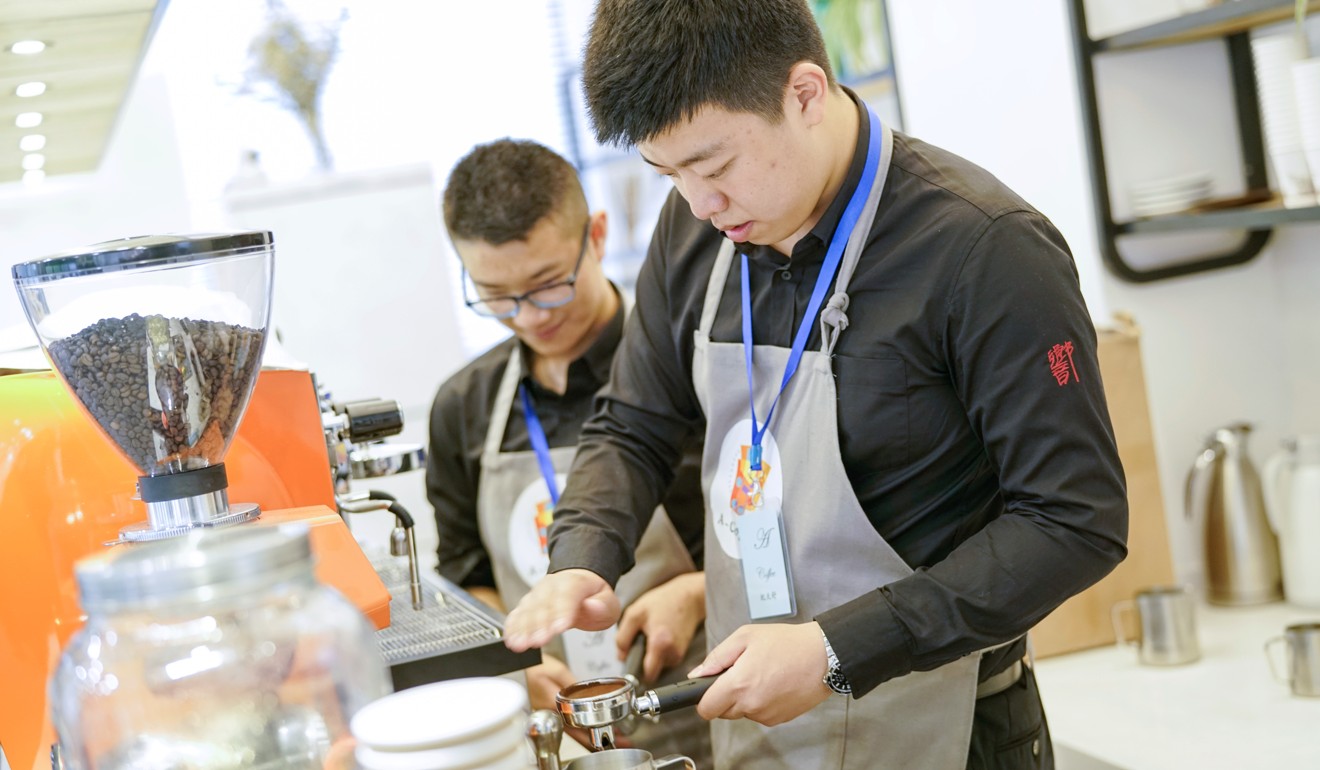
How a Shanghai cafe is helping autistic teens integrate with society
Trained volunteers help baristas improve their communication skills

A Shanghai cafe that helps young people with autism is up and running again after it was forced to move because of a problem with its premises – and its eight baristas and waiters couldn’t wait to get back to work.
The cafe first opened in early April in Jingan Park, offering what is believed to be China’s first such programme to help autistic youngsters improve their communication skills.
But a month later, the landlord told the charity running A-Coffee that they could not operate a food business from the location because it was not possible to get the licence needed for the premises.
“In just that one month, our autistic staff made great progress with their language and communicating with people. So we thought it was worthwhile trying to carry on with this project to help them improve their skills,” said Cao Xiaoxia, founder of charity Shanghai Angels Salon, which runs the cafe and helps autistic children through music education.
The charity managed to find a new central location for its project and the cafe reopened on Friday in a youth centre, where it will serve up coffee for four hours every weekday from 11am.

Among those behind the coffee machine is 16-year-old Dai Wangcheng.
“I’m happy when I’m working at the cafe,” said Wangcheng, adding that his espressos were considered the best.
But this is no ordinary cafe. All the customers are regulars, selected as volunteers to chat with the staff so they can get better at interacting with others, in return for a free coffee.
The customers were chosen from more than 3,500 people who applied to be part of the project, and all of the first group of 100 have had training.
“It’s not open to the public, and it’s not a business operation – it’s a place for autistic kids to practice their social skills,” said Cao’s son Ishiwata Tanni, who is the project manager of the cafe.
He said it was all about trying to help autistic teenagers to integrate into society by improving how they communicate.
“This activity is necessary for kids with autism. These teenagers generally stay at home a lot and they don’t get much chance to interact with other people,” Ishiwata said. “There are other programmes around where an autistic kid works with people who don’t have autism, but there are none like ours involving a bunch of autistic kids working together and interacting with others.”

Autism is estimated to affect more than 10 million people on mainland China, according to state-run China News Service. The disorder affects how a person behaves and interacts with others, their communication and learning, and it ranges in its severity and symptoms.
The first eight coffee makers are aged between 15 and 27, all of them male with varying degrees of autism. They were taught their barista skills at a school in the city.
“The teachers were surprised they learned so fast and so well, but autistic people tend to do routine things pretty well,” Ishiwata said.

The mother of one of the teenagers, Wang Chengqi, who is 16, said her son had become more interested in working at the cafe than in other activities.
“He loves going to the cafe and he said he was looking forward to working with everyone at the cafe again,” said the woman, who did not want to be identified.
She added that she had already seen a change in her son since the cafe project began, and he had begun helping around the house with tasks such as doing the dishes.
Chengqi has not attended classes since he finished primary school several years ago, his mother said, because the mainstream schools were not equipped to deal with his level of autism.
“This cafe is a great place for autistic kids of my son’s age to learn because many of them aren’t going to school,” she said.
“In the past, I never thought my boy could get along so well with others, or work with other people to do things together,” she said. “Seeing what he is doing at the cafe, I’m very proud of him.”